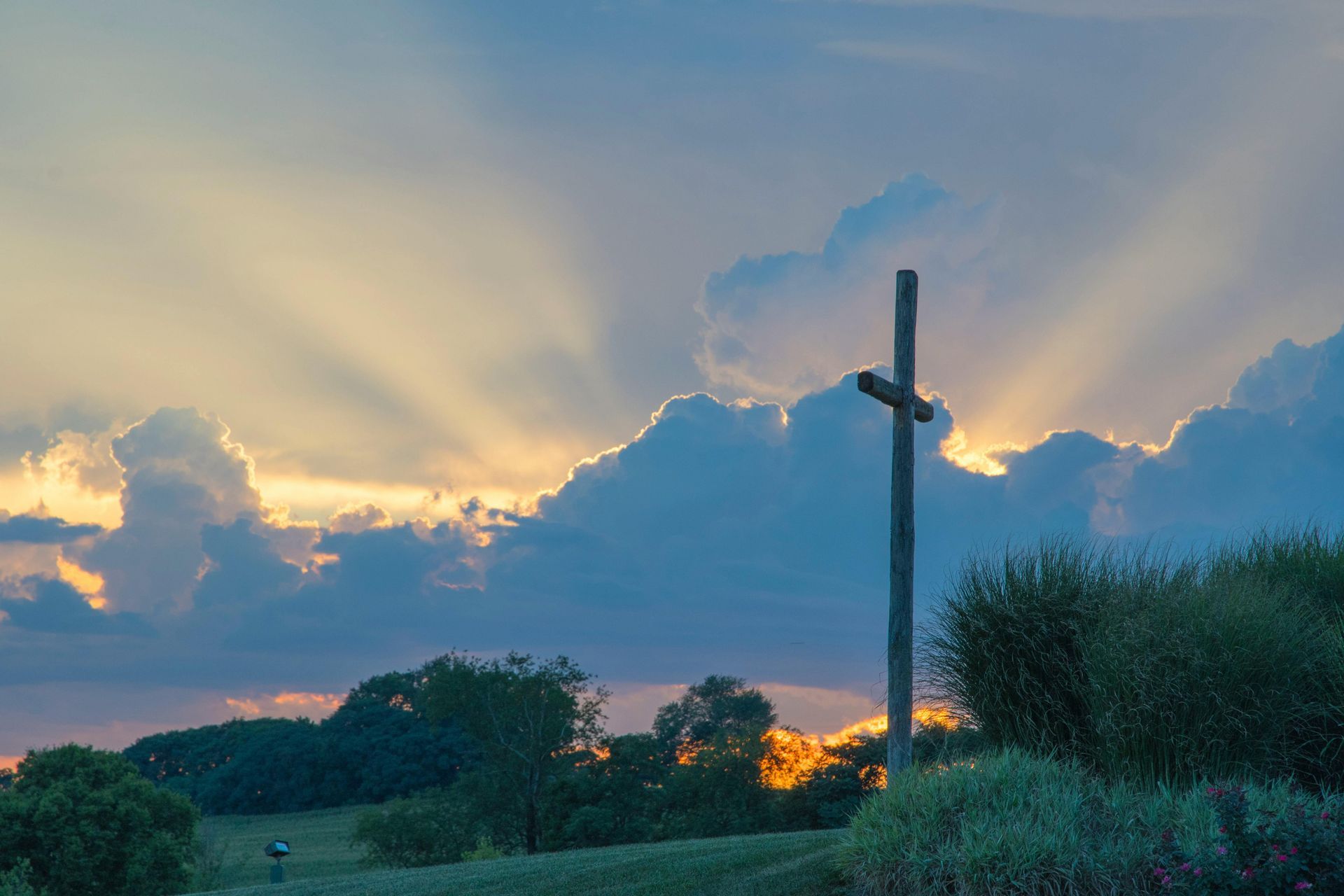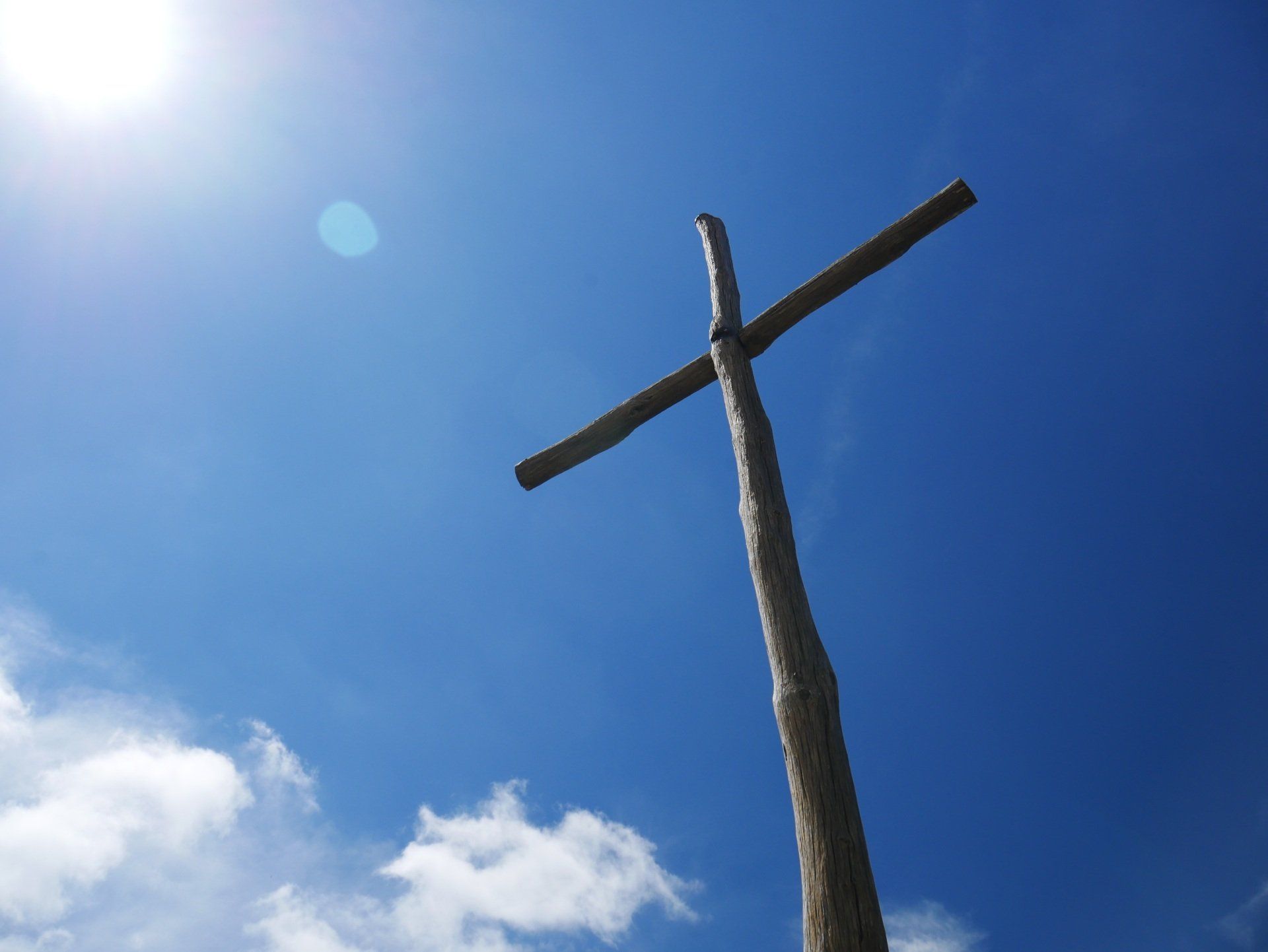Trusting God Even in the Valley
A Look At Psalm 23

Psalm 23 is one of those passages you’ve probably heard so many times that the words almost roll off your tongue without thinking. It shows up at funerals, in songs, even framed on living room walls. But sometimes the familiarity can make us miss its depth.
At its core, Psalm 23 is all about trust. Not shallow trust. Not the kind you give when life is easy and everything makes sense. It’s about the kind of trust that holds on when life takes you through valleys you’d never choose.
David begins: “The Lord is my shepherd; I shall not want.”
That’s a bold statement. Think about what he’s saying: If God is my shepherd, then I’m not lacking anything. Not because life is perfect. Not because I have everything I ever dreamed of. But because my Shepherd knows what I need.
Trust always starts here—knowing who God is. He’s not just powerful. He’s personal. A shepherd knows his sheep. He calls them by name. He stays close enough to lead and protect. That’s the kind of relationship David had with God, and it’s what gave him confidence to trust.
Then David paints this picture: “He maketh me to lie down in green pastures: he leadeth me beside the still waters.”
Don’t rush past that. Sheep don’t naturally lie down unless they feel safe. They don’t drink from rushing streams—they need calm water. This is the kind of care God provides. Trusting Him means you can rest, even when everything in you wants to keep fighting for control.
But here’s where the psalm gets real. Because life isn’t always green pastures and still waters. David says:
“Yea, though I walk through the valley of the shadow of death, I will fear no evil: for thou art with me.”
That verse has comforted people for centuries. Why? Because we all know what valleys feel like. They’re dark. They’re lonely. Sometimes they’re terrifying. And you don’t get to avoid them. Notice David says “though I walk through.” He didn’t choose it. He didn’t set up camp there. He’s just walking through because that’s the path life brought.
But this is where trust becomes more than words. David’s not saying, “I won’t be afraid because I’m strong.” He’s saying, “I won’t be afraid because You are with me.”
That’s the heart of trust. It’s not about ignoring fear. It’s about remembering that God’s presence is bigger than fear. His rod and His staff—the tools of the shepherd—are there to protect and guide. Even in the dark, He hasn’t abandoned you.
David goes on: “Thou preparest a table before me in the presence of mine enemies: thou anointest my head with oil; my cup runneth over.”
This is such a shift in imagery. Suddenly we’re not in a valley—we’re at a table. And not just any table. It’s one God Himself has set for us, even while enemies surround. That’s what trust looks like: being able to sit down and eat in peace because you know God is your host and protector.
And then there’s abundance: “My cup runneth over.” Trusting God doesn’t mean you scrape by with barely enough. It means knowing His goodness spills over in ways you don’t deserve or expect.
Finally, David ends with this promise: “Surely goodness and mercy shall follow me all the days of my life: and I will dwell in the house of the Lord for ever.”
Do you hear the confidence in that? “Surely.” Not “maybe.” Not “hopefully.” David knows that God’s goodness and mercy aren’t temporary. They’re lifelong companions. They chase after him. And they don’t stop at death—they continue into eternity.
That’s where trust lands. It’s not just about surviving today. It’s about knowing that every single day—whether it’s green pastures or dark valleys—God’s goodness and mercy are right behind you, and His presence is right beside you.
So what does this mean for us?
It means trust is not passive. It’s not sitting back and saying, “Whatever happens, happens.” Trust is active. It’s choosing, every single day, to rest in who God is. It’s choosing to follow when He leads, even when the path doesn’t make sense. It’s choosing to believe His presence is enough when fear creeps in.
And here’s the truth: you and I aren’t naturally good at this. We want to be in control. We want to map out the path, avoid the valleys, and keep the enemies away from the table. But Psalm 23 reminds us that trust doesn’t mean control. It means surrender. It means believing that the Shepherd is good, even when life feels anything but good.
That’s hard. But it’s also freeing. Because when you really believe the Lord is your Shepherd, you can say, like David, “I shall not want.” You can face valleys without fear. You can sit at tables surrounded by enemies and still enjoy the feast. You can look ahead to the future with hope, not dread.
Psalm 23 isn’t just poetry. It’s a roadmap for trust. It shows us that God is personal, present, protective, and good. And it invites us to rest in Him.
So maybe today you’re in a green pasture, enjoying peace and provision. Trust Him there. Or maybe you’re walking through a valley so dark you can barely take another step. Trust Him there too. Or maybe enemies surround you, and you feel outnumbered. Trust Him as He prepares a table and fills your cup.
No matter where you are, His goodness and mercy are right behind you. His presence is right beside you. And His house is waiting for you forever.
That’s the Shepherd we trust.









